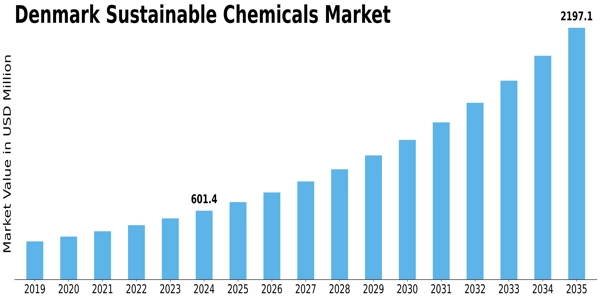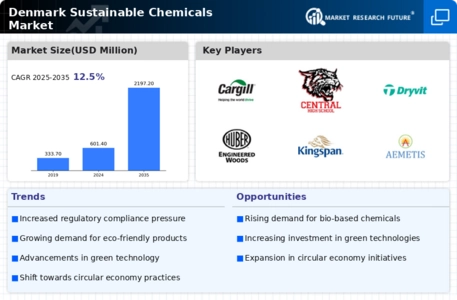Denmark Sustainable Chemicals Size
Denmark Sustainable Chemicals Market Growth Projections and Opportunities
Sustainable Chemicals market in Denmark is impacted by the several market substances that area unit the key instruments for the expansion and development of the market. One of the significant facts of this market is that it becomes more important with the growing number of people who are environmentalists and who are anxious about the environment. Mounting concerns for the climate change and a planetary deterioration put high demands on the advancements of green alternatives in various branches, for example, chemistry. The position of Denmark, the country with a great endorsement of green initiatives and renewable energy, is seen as an opportunity to familiarize with such phenomenon.
The governmental set of policies and regulation are absolutely manifold and capable of making distinct stability in chemical sustainable markets of Denmark. The authority has enforced rigid environmental provisions and standards on the production enterprises, which have led to eco-friendly practices and products. The suitable incentives and subsidies drive the chemical companies of sustainable green technologies to the adoption and promotion of which this type of technologies are. Such a system offers a supportive environment for the creation and the increased development of domestic green chemical solutions.
The Danish model also cherishes research and development which are the main drivers of the transition to sustainable chemicals. The collaboration of the government, universities and business in the green chemistry becomes a birthplace of innovative solutions. Investing in research initiatives such as introducing new environmentally-friendly chemical processes and products helps the sustainable chemicals market of Denmark to sustain its competitive advantage and now have its products in consumption all over the globe.
The demand of the market and the consumer preferences in connection with the sustainable chemicals area in Denmark have a strong impact as well. As buyer are becoming increasingly aware of produce pollution, once these products are used, hence there is the development and revision companies that are addressing such environmental issue through the utilization of sustainable alternatives. The market has a growing section to products that are environmentally friendly, and companies responding to this demand by offering eco-friendly products obtain a competitive advantage over their competitors. Consumer choice dictates the necessity of innovation: chemical solutions can then be produced in a sustainable and environmentally-friendly manner.
Moreover, the combined efforts of the different bodies, like the industrial players, non-governmental organization, and research institutions bring significant development in the bio-chemicals market of the country. Partnerships and joint efforts are directly linked to the sharing of knowledge, technology transfer, and the raise of good practices. This cooperative culture increases the industry's capacity to face problem areas and take advantage of opportunities, and in fact supports the continued development of the chemical sector in a sustainable manner.
With the increasing prevalence of sustainable export markets fiercely competing for “green alternatives”, Danish companies exporting sustainable chemical products find their demand accelerating. This is a chance for Danish sustainable chemicals companies to gain a larger status abroad, and be part of the global shift towards sustainable ways of living.



















Leave a Comment